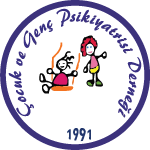ABSTRACT
Objective:
The aim of the study is to determine high school teachers’ opinions on adolescence period.
Method:
Research data were collected from 135 high school teachers in İzmir and the structured interview method was used to collect the research data. A content analysis was used during the data analysis.
Results:
The related characteristics of adolescence according to teachers, respectively, emotional development (f=100), stormy stressful (f=66), social development (f=33), cognitive development (f=30), personality development (f=30), sexual development (f=11) and physical development (f=6) are mentioned. Teachers stated that generally a group based studies have been made about puberty in school (f=152). It was observed that some topics about puberty discussed in class by the majority of the teachers in the study (f=90). Most of the teachers need the information that basic characteristics of adolescence (f=39) and communication with young people (f=12). Teachers mentioned most past experiences about puberty related information sources (f=110). The main theme of puberty-related problem areas were “social environment” (f=93), “psychological” (f=63), “academic” (f=56) and “career-based” (f=13). “Family-based” resources have been emphasized as problems’ resources (f=118). Finally, it was stated that the adolescents should be informed on the matters, respectively, personal (f=100), social (f=77), academic (f=20) and Professional (f=12).
Discussion:
Although teachers notice the features for the period of puberty that could recognize at fi rst glance, it can be said to be lacking in other specifi c identifi cation. In teachers’ views, negative stereotypes about puberty seem to be common and it is believed that they often adversely affect the well-being of adolescents.



